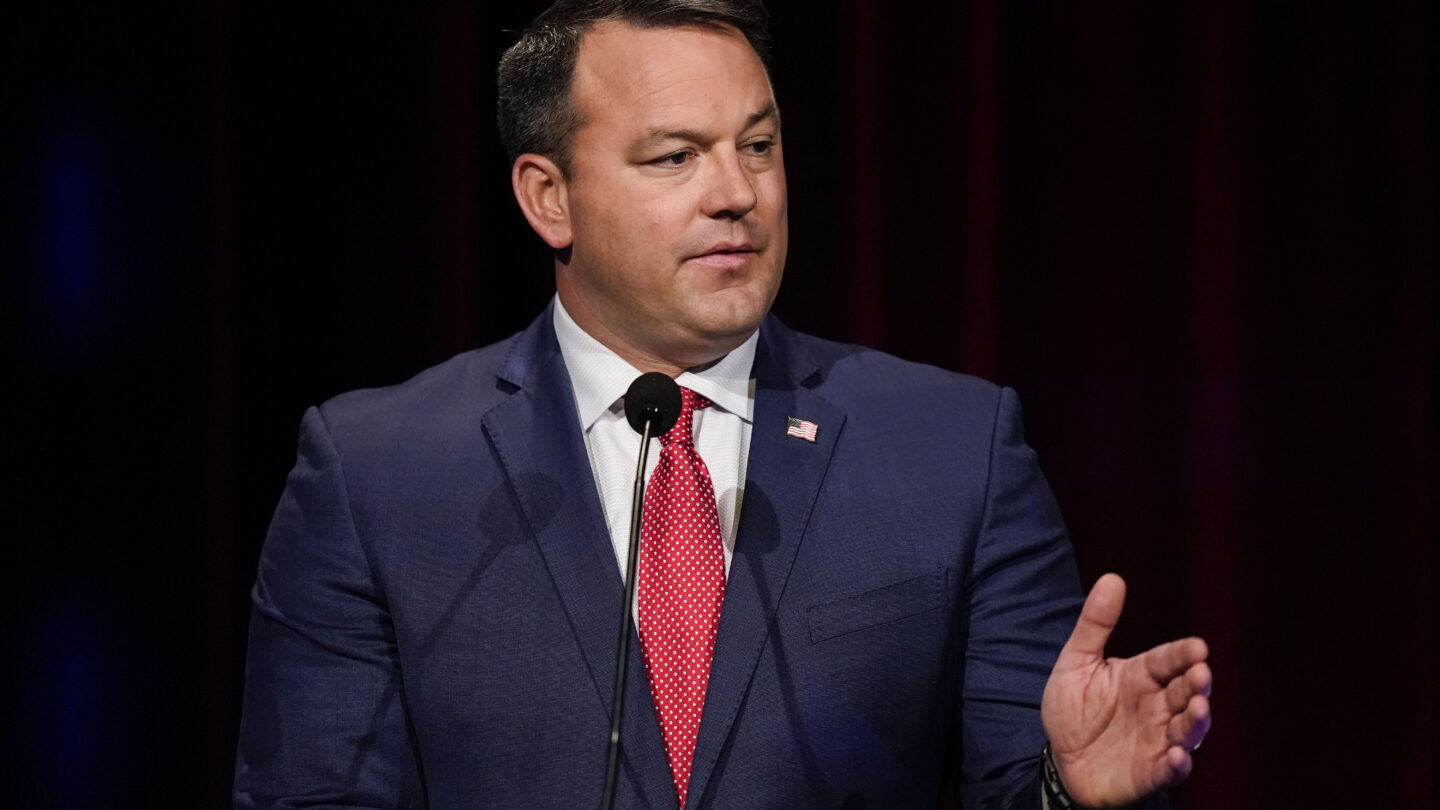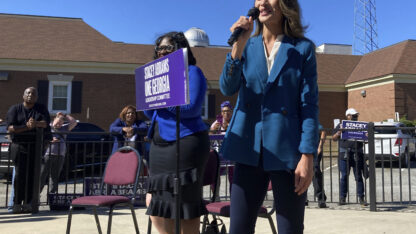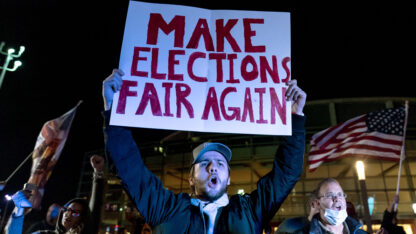In the weeks after the 2020 election, Republican State Sen. Burt Jones joined a fake slate of electors for Donald Trump after Joe Biden won the 2020 election in Georgia.
Roughly two years later, Jones is the Republican nominee for lieutenant governor of Georgia – and his actions after the last election are animating the campaign in the current one.
Through the Republican primary, Jones promoted false claims about election fraud in Georgia.
“The elections, ladies and gentlemen, could have been so simple to fix, so simple to investigate,” he told the crowd during a March rally with Trump in Georgia.
Jones and 15 other Georgia Republicans signed on as fake electors for Trump, even submitting a document to the National Archives.
The Democratic nominee for lieutenant governor, Charlie Bailey, has highlighted his opponent’s post-election activities.
“This guy forged a fake electoral ballot in secret — [and] not only that — he flew to Washington D.C. the day before the insurrection with a letter in his pocket to meet with the vice president of the United States to urge him not to count the electoral votes,” Bailey told voters at a recent rally in Lilburn.
Jones says he never delivered the letter and didn’t do anything wrong.
“You know, the fact of the matter is we had court cases going on at the time,” he said during the Atlanta Press Club debate in October. “It was a procedural move that we knew we were not going to move forward if those court cases didn’t move forward. But as I travel around the state, no one is talking to me about 2020.”
Trump’s allies undertook similar efforts in other swing states, which are now under investigation by Congress, the Justice Department and a special grand jury in Fulton County.
Georgia State University Law Professor Anthony Kreis says one question these investigations are trying to answer is who hatched and coordinated the scheme.
“We don’t know exactly who told what, when, why — we don’t know all these facts,” Kreis says.
Kreis says it’s illegal under Georgia law to submit false documents falsely claiming to exercise government power and to impede the administration of an election.
Over the summer, Georgia’s fake electors, including Jones, were notified they’re targets of Fulton County’s criminal investigation into efforts to overturn the 2020 election.
A judge later barred Fulton County from investigating Jones because Prosecutor Fani Willis held a fundraiser for his opponent in the race for lieutenant governor, Charlie Bailey.
Georgia’s lieutenant governor primarily serves as president of the Georgia Senate, where they have sway over legislation and a prominent platform but no direct role in certifying an election.
Another fake elector from Georgia, Shawn Still, is running for the Georgia State Senate from District 48.
Georgia’s current lieutenant governor, Republican Geoff Duncan, did not seek reelection largely due to frustration with his party’s willingness to back Trump’s efforts to hold onto power in 2020.
“It’s really essential that people who hold positions of power will be willing to adhere to democratic principles even when they lose out,” Kreis says.









